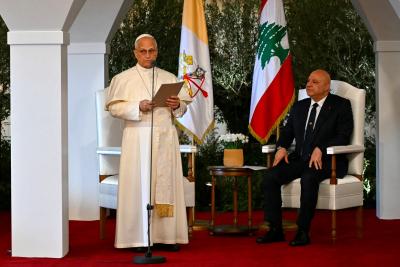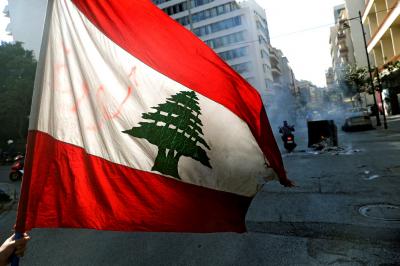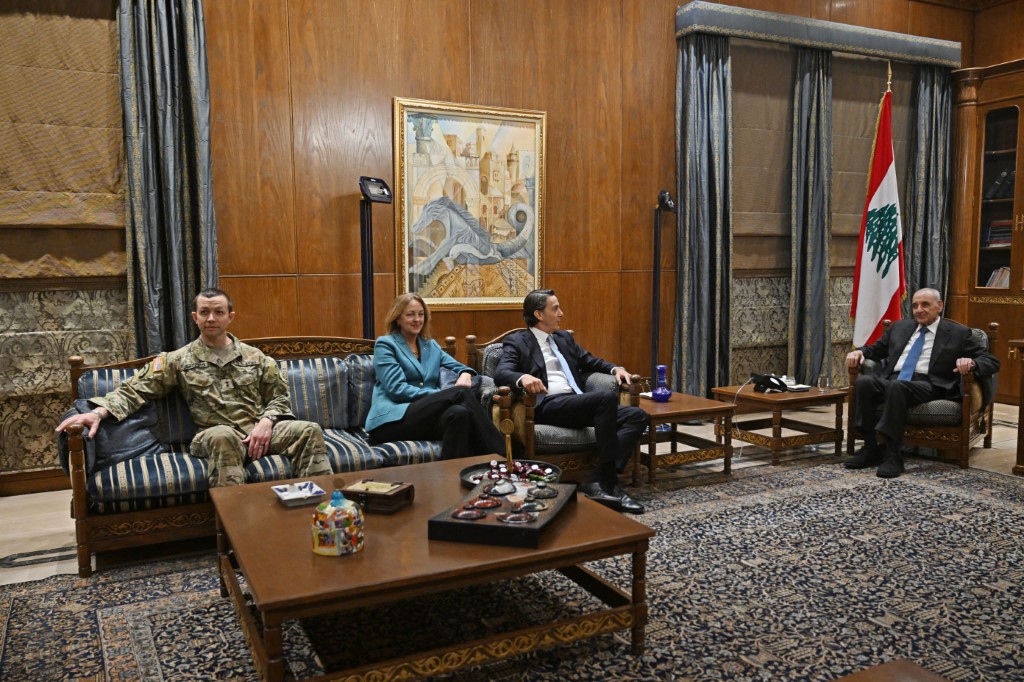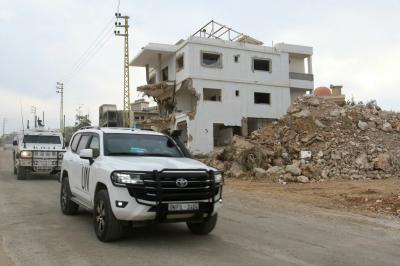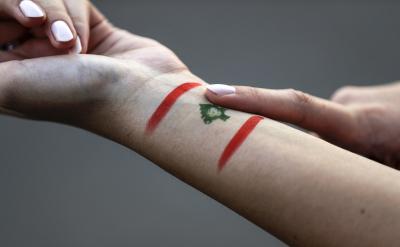Thirty-five years ago, the assassination of René Moawad, Lebanon’s first post-war president, marked the inaugural “statement” of a coup against the Taif Accord. It was a move to derail the transition from the warlords and fiefdoms of conflict to a unified state and its institutions. Following Moawad, presidents from Elias Hrawi to Émile Lahoud were effectively “appointed” in Damascus’s Al-Muhajireen Palace, while the electoral process in Beirut served as mere formalities. These were not subtle "Syrian green lights" but direct orders issued by Hafez al-Assad and later his son, Bashar.
The withdrawal of Assad's forces from Lebanon on April 26, 2005, did not liberate the presidential elections or fully subject them to democratic practices and the ballot box. Instead, the March 8 alliance—dubbed the "Thank You Syria" coalition—quickly sought to replace the influence of the Syrian representative in Lebanon and Hezbollah. Hezbollah stepped into the vacuum, entering the executive branch for the first time and taking direct control of the political game.
The first post-Taif presidential milestone came at the end of Émile Lahoud's extended term on November 23, 2007. Hezbollah wielded the “vacuum card” to block the March 14 coalition from translating its parliamentary majority into electing a president of its choice. This maneuver culminated in the May 7, 2008 clashes, during which Hezbollah deployed its weapons internally, targeting Beirut and Mount Lebanon. The violence resulted in dozens of civilian casualties and paved the way for the Doha Agreement, which saw the election of then-army commander General Michel Sleiman.
The second major milestone came at the end of Sleiman’s term on May 24, 2014. Again, Hezbollah resorted to a two-and-a-half-year vacuum to impose its candidate, General Michel Aoun. This success came after the March 14 coalition faltered, particularly when Future Movement leader Saad Hariri negotiated with Suleiman Frangieh, a pro-Syria figure and head of the Marada Movement, with the backing of Speaker Nabih Berri and Druze leader Walid Jumblatt. Feeling sidelined, Samir Geagea retaliated by aligning with Aoun, endorsing him publicly on the condition that Aoun adopt the sovereign principles outlined in the Maarab Agreement.
The Shiite duo has taken note of the envoys' messages, amidst increasing pressure—whether from its base, frustrated by stalled reconstruction efforts and inadequate, selective aid for those affected, or from the shifting political realities in Lebanon and the region.
Since the end of Michel Aoun's October 30, 2022 presidential term, Lebanon has been navigating its third presidential impasse. Hezbollah has once again employed the “vacuum card,” orchestrating disruptions to pave the way for its preferred candidate, Suleiman Frangieh, backed by the "duo" alliance. Speaker Nabih Berri has played a pivotal role as the "older brother," either by blocking quorum, avoiding successive electoral sessions, or imposing preconditions like multi-day dialogues to agree on a candidate. Prolonged delays have ensued, with the last electoral session on June 14, 2023.
Post-October 7 Era and the Collapse of the Resistance Axis
Today, Lebanon’s presidential deadlock unfolds against the backdrop of seismic shifts in the region, ushering in a new post-October 7 reality marked by the unraveling of the so-called "Resistance Axis":
Hamas on the Brink: Reduced to scattered remnants in Gaza, Hamas now faces an inevitable demise.
Nasrallah's Assassination: The elimination of Hezbollah’s leader forced the party to accept a ceasefire agreement, abandoning its "unity of fronts" rhetoric. The deal entails a 60-day implementation period, overseen by a U.S. general, and mandates the enforcement of UN resolutions 1559, 1680, and 1701, including the disarmament of non-state actors.
The Fall of Assad’s Regime: The collapse of the Assad dynasty has severed Syria, the vital artery of the Resistance Axis, fracturing Hezbollah’s supply routes and isolating the group.
Houthi Setbacks in Yemen: Intensified strikes on Houthi forces signal an impending decisive phase in Yemen.
Iraq Seeks Stability: Iraqi authorities have quickly stabilized their internal affairs, avoiding the costs of aligning with Hezbollah’s "unity of fronts."
Iran's International Isolation: With Donald Trump’s presidency straining relations, Iran faces uncertainty in its dealings with the international community, attempting to present itself as a viable partner to the West to ease sanctions and resolve its nuclear ambitions.
To prepare its base for this likely shift, Hezbollah has resorted to familiar tactics, framing Aoun’s potential election as a strategic “victory.”
Hezbollah Reluctantly Backs Down on Presidential Stalemate, Paving Way for Joseph Aoun
As Lebanon faces its third presidential crisis since the end of Michel Aoun’s term on October 30, 2022, Hezbollah and its ally, Speaker Nabih Berri, have been forced to abandon obstructive preconditions like pre-election dialogues or agreements on a candidate. Berri has now scheduled a long-overdue electoral session for January 9, 2025—almost 19 months after the last session.
Moreover, the Shiite duo appears to have dropped its insistence on Suleiman Frangieh’s candidacy. Instead, it is floating "smoke-screen" nominees in an attempt to push through figures aligned with their agenda, albeit ones limited to managing the status quo rather than spearheading reforms.
Joseph Aoun: A Viable Consensus Candidate
The increasing regional and international momentum ahead of the upcoming session has elevated Army Commander General Joseph Aoun as a strong contender. Backed by growing parliamentary support, Aoun aligns with the criteria set by the international “Quintet Committee.” However, his candidacy faces a constitutional hurdle: as a first-tier government official, Aoun would need 86 parliamentary votes to amend the constitution.
While key international players, particularly Saudi Arabia, avoid endorsing specific candidates, they have made it clear that any aid for Lebanon’s reconstruction and recovery hinges on electing a president who can navigate the new regional realities. This includes adherence to the ceasefire agreement, implementation of UN resolutions 1559, 1680, and 1701, disarmament of non-state actors, and carrying out essential reforms outlined since the CEDRE conference in 2018.
Mounting Pressure on Hezbollah
Facing growing pressure both domestically and regionally, Hezbollah has been forced to reconsider its stance. The Shiite duo has taken note of the envoys' messages, amidst increasing pressure—whether from its base, frustrated by stalled reconstruction efforts and inadequate, selective aid for those affected, or from the shifting political realities in Lebanon and the region. Initially, the party rejected Aoun’s candidacy, claiming Frangieh was their sole choice. It repeatedly questioned Aoun’s close ties to the U.S., echoing past accusations by former Secretary-General Hassan Nasrallah, who, in February 2022, accused American officers at Lebanon’s Ministry of Defense of meddling in national affairs. Hezbollah also criticized Aoun’s leadership during key incidents, including the Tayouneh clashes in October 2021 and security raids in Baalbek in June 2022, which prompted threats from the party’s clerics against the army.
Now, however, Hezbollah’s options are narrowing. Militarily, it must either comply with the ceasefire agreement it approved—which includes nationwide disarmament—or risk further Israeli attacks. Politically, it must either respect democratic processes and end obstruction or bear the blame for prolonged paralysis. Any attempt to impose an unsuitable president would doom Lebanon to another six years of deepening crises.
Softening Stance on Joseph Aoun
Acknowledging these constraints, Hezbollah has begun signaling a shift. On January 5, 2025, Hezbollah official Wafiq Safa stated, “We have no veto on Joseph Aoun. The only veto we have is against Samir Geagea, as his presidency would be divisive and destructive.” While this doesn’t guarantee support for Aoun, it reflects the party’s growing acceptance of him as a viable option.
The Lebanese Forces (LF), in turn, have indicated they would not oppose Aoun’s election. In a January 6, 2025, statement, the LF affirmed, “We will not stand in the way of a consensus around Joseph Aoun and have no objection to his election.”
Should Hezbollah back Aoun, his path to Baabda seems assured. If not, the Shiite duo may be forced to relent soon, as their maneuvering room shrinks and their tolerance for extended paralysis diminishes.
Preparing the Base for a Policy Shift
To prepare its base for this likely shift, Hezbollah has resorted to familiar tactics, framing Aoun’s potential election as a strategic “victory.” The party claims it succeeded in blocking Geagea, despite the LF leader not being a candidate. Hezbollah’s renewed attacks on Geagea serve as a substitute for an actual triumph, redirecting frustration over its concessions.
In this evolving landscape, Joseph Aoun emerges as the consensus candidate who may finally end Lebanon’s prolonged presidential vacuum.
Please post your comments on:
[email protected]
 Politics
Politics

